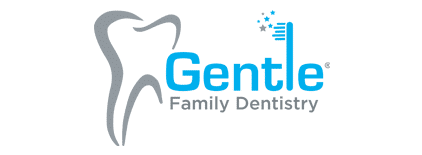How to Floss Your Teeth

Gentle Family Dentistry
382 US Highway 46 Suite 3A
Budd Lake, NJ 07828
(973) 691-1200
OFFICE HOURS
Monday
8:30am - 5:00pm
Tuesday
8:30am - 6:00pm
Wednesday
Closed
Thursday
8:30am - 6:00pm
Friday
8:30am - 2:00pm
Saturday
Closed

HOW TO FLOSS IN Budd Lake
Brushing teeth is an easy and familiar dental care activity that the vast majority of us do on a daily basis. However, flossing teeth can be a bit more complicated and intensive. Even though it’s widely acknowledged that flossing is a very helpful dental technique in protecting your teeth, many people find the activity too tedious to maintain as part of a daily regimen.
The truth is, while flossing teeth may not as easy as brushing teeth, it does have real dental benefits. And while it may feel a bit complicated at first, with practice flossing teeth can take very little time. Especially if you consider new, modern alternatives to traditional dental floss.
WHY FLOSSING MATTERS
Brushing your teeth removes plaque from the surface of your teeth and gums. Because of the nature and shape of a toothbrush, it’s best suited for performing this task on the actual chewing surfaces, as well as the front and back of your teeth. However, a toothbrush cannot get between your teeth, and these spaces are just as prone to developing plaque and tartar as the other areas of your mouth.
HOW TO FLOSS
If you’re using traditional dental floss, break out about 18” of floss. Wind the floss around one finger as an anchor. Hold the floss between these anchored fingers and thumb.
Guide the floss between your teeth. A gentle rubbing motion can help with this. Once between the teeth, rub the space between teeth and gradually work your way up to the gum. When you arrive at the gum, twist the floss into a “C” shape and guide the floss sliding into the gum to clean this area.
Do this for every tooth in your mouth. It’s especially important that you do this for the back teeth, where food is most likely to accumulate.
USE WATER FLOSS
For people that have difficulty with traditional flossing techniques, using a water floss device is a real alternative. While a water flosser doesn’t quite provide the same mechanical scraping action of dental floss, the high-pressure jet of water is still an effective means of removing plaque. A quality water floss device will also rinse out the pocket areas of your gum in a way that dental floss can’t. While it lacks the sheer mechanical cleaning force of dental floss, it has other benefits.
In a perfect world, a combination of brushing teeth, dental floss and using a water floss would be the ultimate oral hygiene regimen for anyone to maintain. Most people won’t do this, however, but a combination of brushing teeth with dental floss or water floss is still a good daily habit to maintain. Contact our team at Gentle Family Dentistry today for more information.


